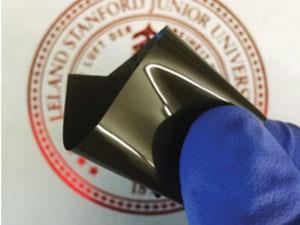Polymer electrode coating may help prevent lithium battery fires

Expanding polymer takes the heat out of lithium batteries was first published by Chemistry World.
Polymer electrode coating may help prevent lithium battery fires

Expanding polymer takes the heat out of lithium batteries was first published by Chemistry World.
No comments yet